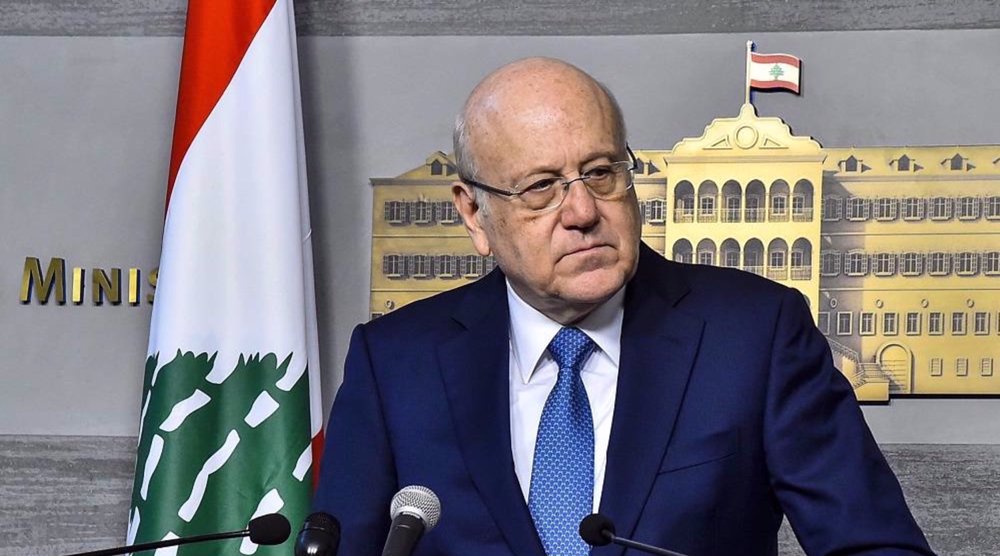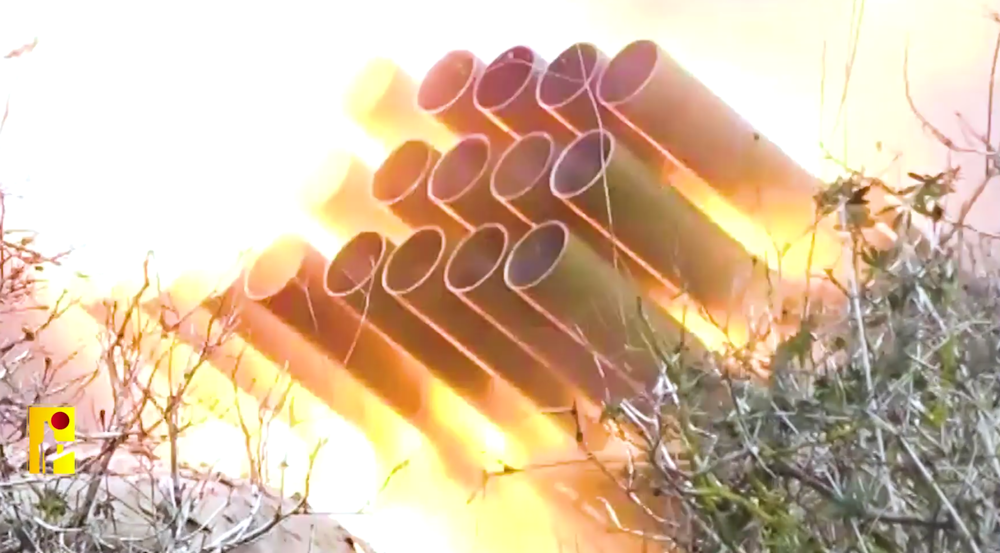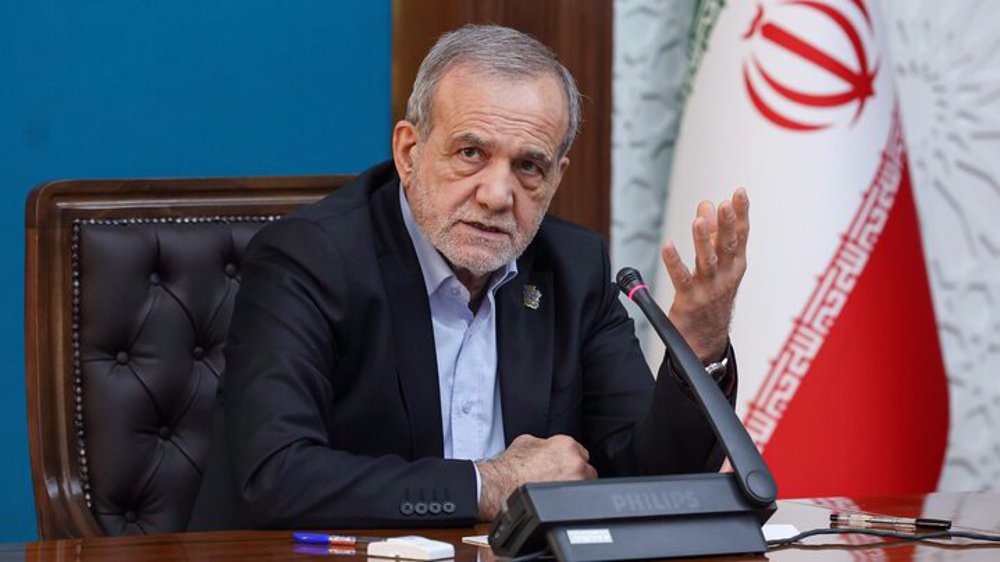Lebanon PM says Israel ‘rejecting efforts made to secure ceasefire’
Lebanon’s Prime Minister Najib Mikati says the Israel regime’s prime minister, Benjamin Netanyahu, has rejected his country’s ceasefire proposal.
Mikati condemned Israeli strikes that hit Beirut's southern suburbs on Friday, killing at least 52 Lebanese and wounding another 72 people.
"The raids left massive destruction in the targeted areas, as dozens of buildings were leveled," Lebanon's official National News Agency (NNA) reported.
Mikati said the renewed bombing of Beirut's southern suburbs and strikes on other areas "confirm the Israeli enemy's rejection of all efforts being made to secure a ceasefire."
In an interview with Asharq Al-Awsat newspaper, Lebanon’s Parliament Speaker Nabih Berri also said on Friday that Netanyahu rejected Lebanon’s roadmap despite it was agreed upon with US envoys Amos Hochstein and Brett McGurk.
Berri said political efforts to end the Israeli aggression on Lebanon have been postponed until after the US presidential election.
The Lebanese politician noted that Israel’s continued attacks and threats on people to evacuate entire cities and villages show that the regime does not want a ceasefire with Lebanon and is insistent on its policy of killing and destruction.
Berri called on the international community to assume its historic and moral responsibilities and stop Israel’s assault on Lebanon.
On Thursday, Netanyahu told Hochstein and McGurk that any ceasefire deal with Hezbollah must guarantee what he called Israel's long-term security.
A US-brokered plan reportedly under consideration would see Hezbollah pull back 30 kilometers (20 miles) from the border, north of the Litani River, with Israeli forces withdrawing and the Lebanese army patrolling the border alongside UN peacekeepers.
Israel has been carrying out bloody acts of terror and aggression across Lebanon after the occupying regime unleashed its genocidal war on the Gaza Strip.
At least 2,865 people have been killed and 13,047 others injured in Israeli attacks on Lebanon since early October 2023, according to the country’s health ministry.
In late September, the regime assassinated the leader of the Lebanese resistance movement Hezbollah, Sayyed Hassan Nasrallah, in a strike in southern Beirut.
Since then, Hezbollah has increased its retaliatory attacks against Israeli targets and vowed to continue its fight in support of Gaza and Palestine, and in defense of Lebanon.
The Lebanese resistance movement has vowed to keep up its operations against Israel as long as the regime continues its campaign of genocide in Gaza, which has so far killed more than 43,000 Palestinians, mostly women and children.
Iran holds funeral for 165 children murdered in US-Israeli aggression
Iran destroys main command building, headquarters of US air base in Bahrain
US embassy in Saudi capital set ablaze after drone attack: Riyadh
Saudi Arabia, Qatar foiled Mossad bombing plots on their soil: Tucker Carlson
Iran's firm response will last as long as attacks do: Envoy
Shedding of American, Iranian blood on ‘Israel firsters’: Iran FM
Iran condemns IAEA inaction as US-Israeli aggression targets nuclear facilities
Iran FM: Kuwait must answer what US aircraft were doing in its airspace if it downed them












 This makes it easy to access the Press TV website
This makes it easy to access the Press TV website